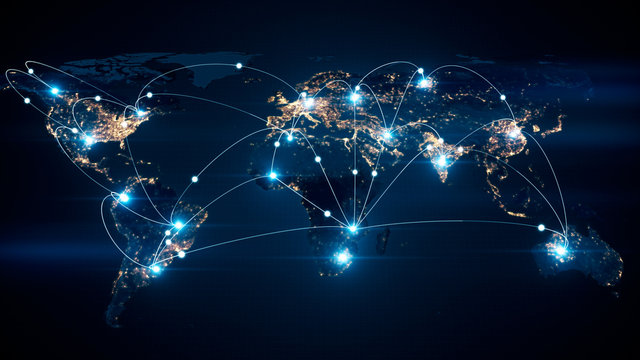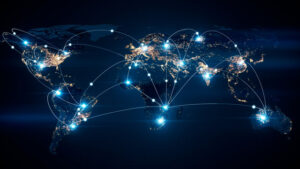
Globalization and Politics
Globalization, the process of increased interconnectedness and interdependence among countries, has ushered in profound transformations across various domains of human existence, including politics. While globalization is often associated with economic integration, its impact on political dynamics is equally significant and multifaceted. This note explores the intricate relationship between globalization and politics, drawing on evidence-based insights from scholarly discourse.
One of the central aspects of globalization’s impact on politics lies in the constraints it places on the autonomy and authority of national governments. The ability of states to formulate and implement macroeconomic policies has been substantially curtailed in an era of free-moving capital. Previously, governments could employ instruments like interest rates and exchange rates to manage economic growth and inflation. However, as financial markets became globalized, these policy levers became less effective. This limitation is particularly evident in countries that have pegged their currencies or adopted a common currency. Furthermore, the challenges of stemming capital flight during speculative crises compel governments to prioritize financial stability over policy flexibility.

Globalization has also reshaped the landscape of industrial policy. Governments historically used various tools to nurture specific industries within their borders. However, the globalization of supply chains and increased capital mobility have made it harder for governments to direct investments toward targeted sectors. The emergence of global suppliers often diminishes the need for cooperation with local producers. International trade rules further restrict the support governments can provide to domestic industries, leading to trade disputes. These constraints raise questions about the viability of traditional industrial policy in a globalized world.
Concerns regarding the fate of the welfare state in the era of globalization have been widespread. There is a fear that capital mobility and international competition will force governments to reduce social welfare expenditures, potentially resulting in a race to the bottom in wages and social provisions. While these concerns are valid to some extent, evidence suggests that the impact of globalization on social expenditure varies among countries. The resilience of the welfare state depends on a complex interplay of domestic factors such as demographics and political institutions, in addition to external factors like capital mobility.
Furthermore, globalization has not led to the convergence of economic systems across nations. Rather, it has accentuated the diversity of national models of capitalism. Different countries have distinct institutional configurations that shape their economic performance. While some argue that certain types of capitalism may be better suited to respond to globalization’s challenges, there is no one-size-fits-all model. Instead, each variety of capitalism may excel in addressing specific coordination and production problems but may not necessarily outperform others across all economic dimensions.
Contrary to expectations that globalization would diminish the role of the nation-state, it has, in fact, refocused political attention on governments’ responsibilities in protecting national interests. Citizens view globalization as a source of problems, such as unemployment, industrial relocation, and immigration, which need to be addressed by their own governments. This has given rise to political movements advocating for reinforced national controls at borders. Dissatisfaction with elected politicians does not necessarily indicate a weakening of national loyalties but rather a demand for governments to play a more active role in mitigating the consequences of globalization.
In conclusion, globalization and politics are intertwined in a complex and multifaceted relationship. Globalization’s impact on politics includes constraints on macroeconomic and industrial policies, concerns about the welfare state, and the persistence of diverse national models of capitalism. Rather than diminishing the nation-state’s significance, globalization has heightened the importance of governments in addressing the challenges posed by an interconnected world. These challenges have led to the emergence of new political agendas and conflicts, underlining the enduring role of the nation-state in shaping the global political landscape.
Admin at The Pakistan Gazette

